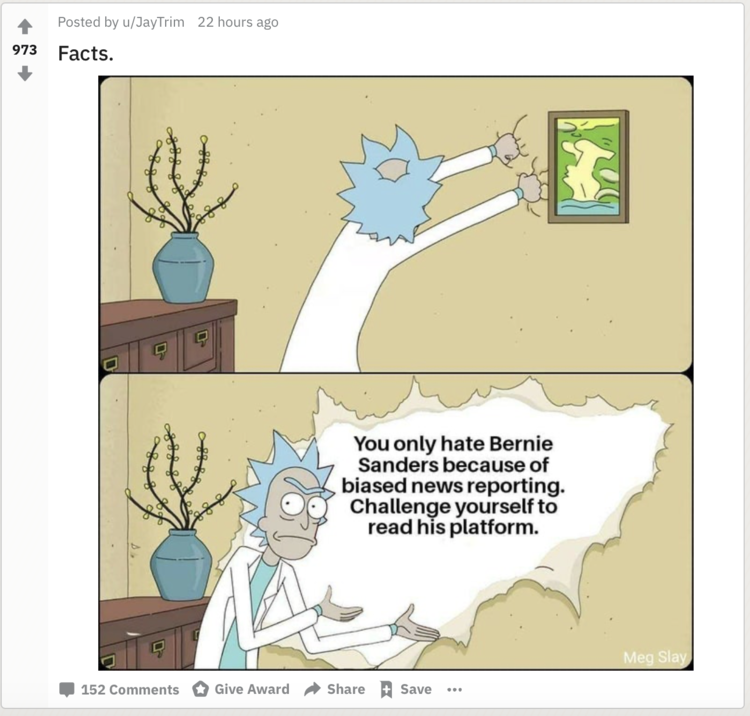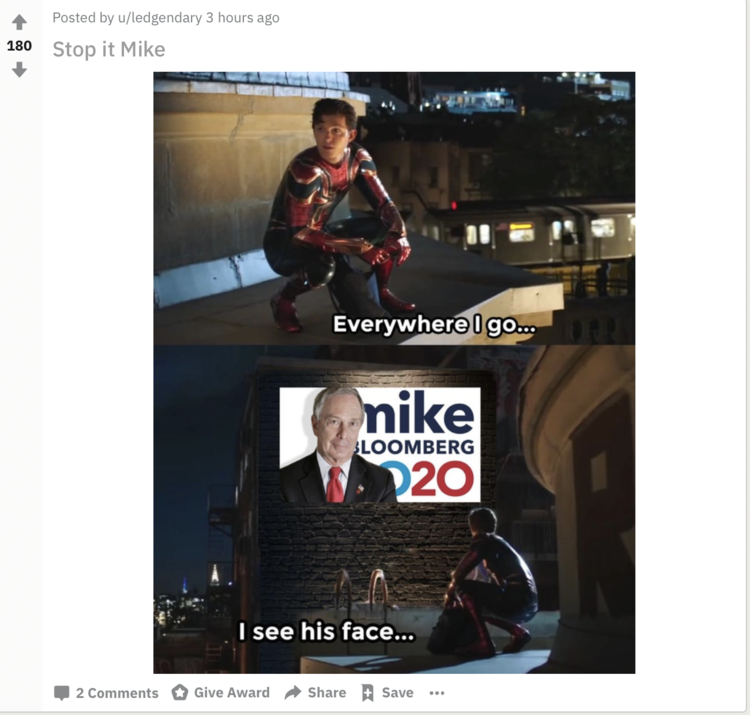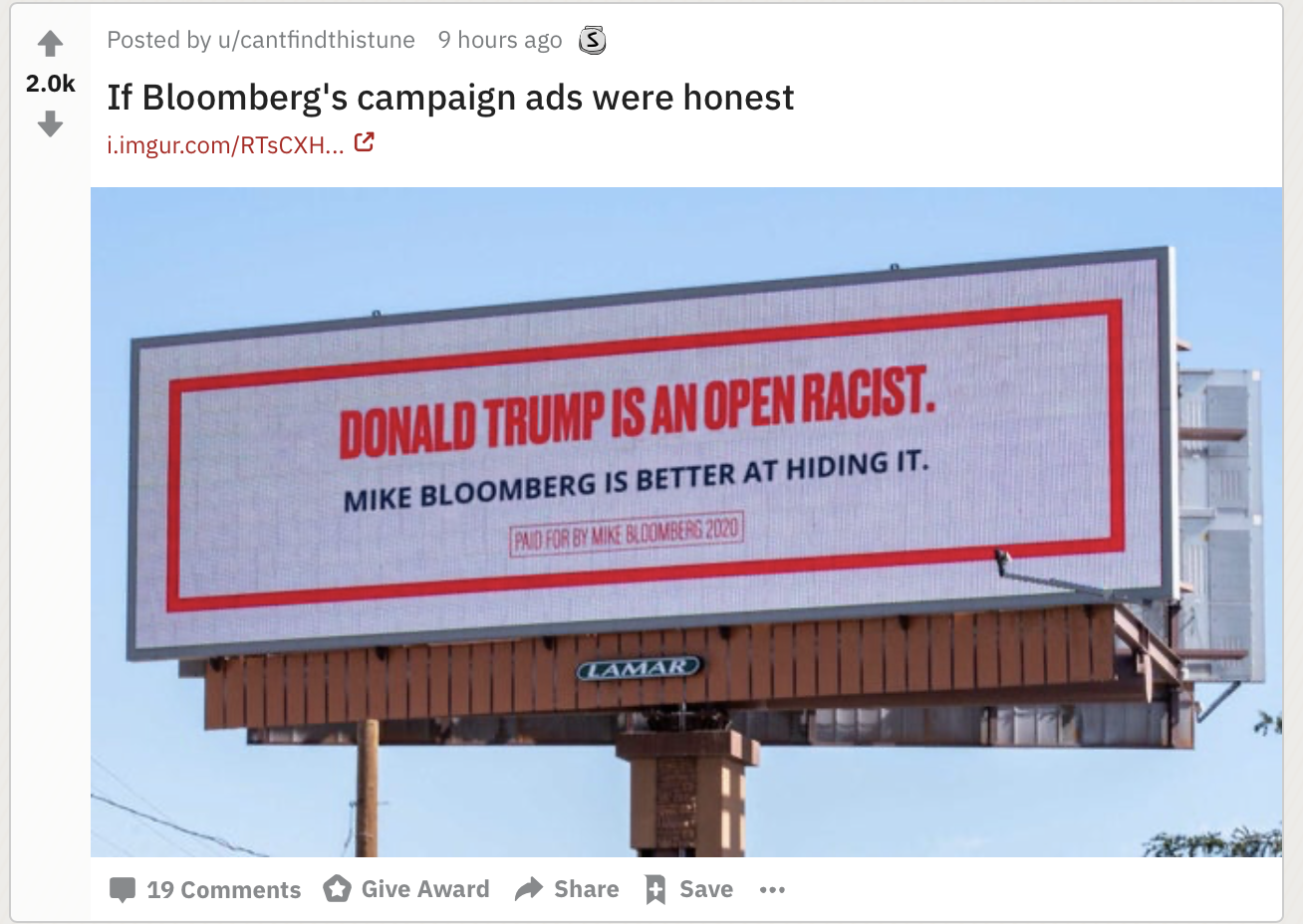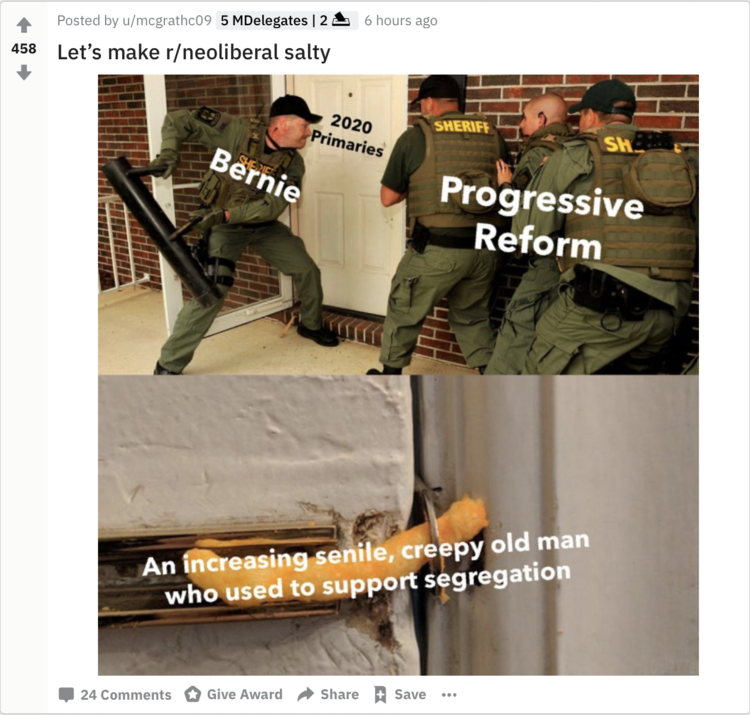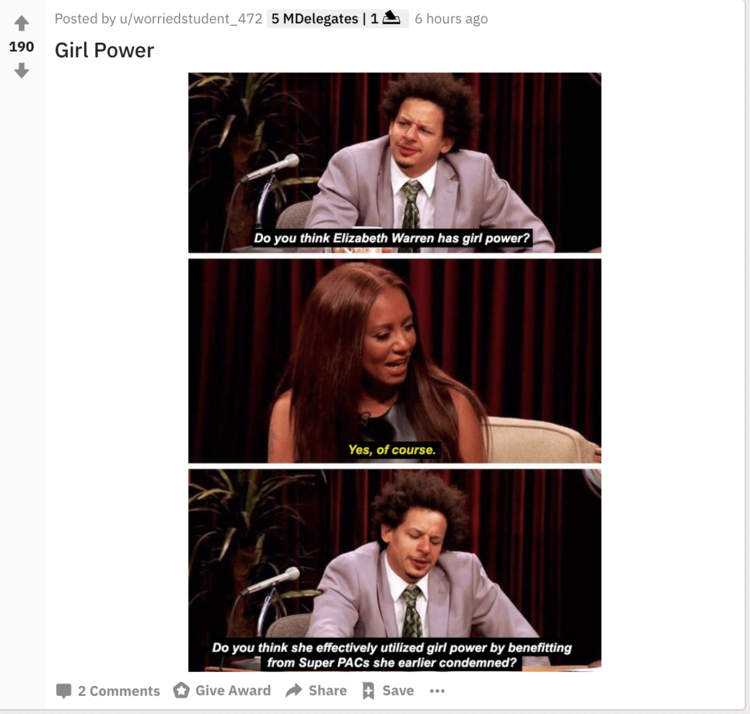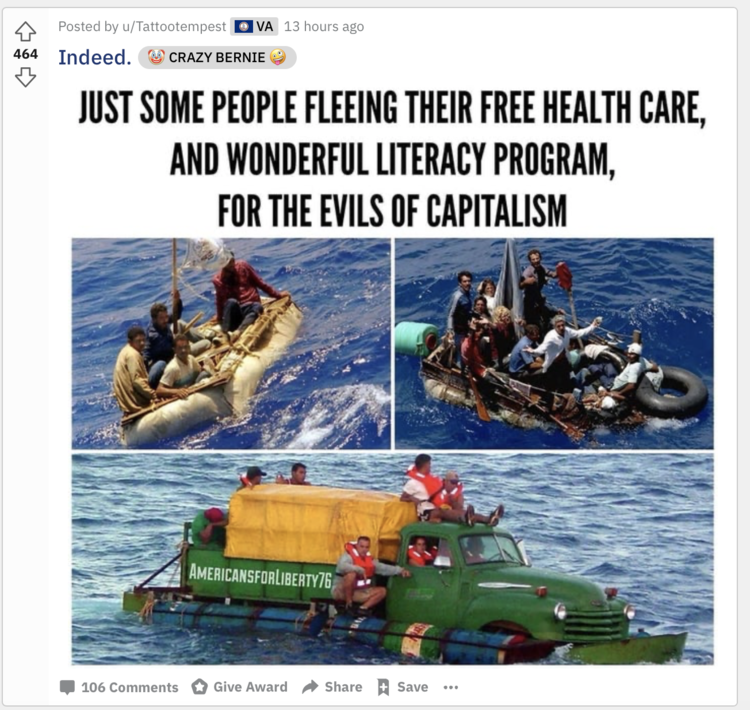Meme 2020: Memes creating civic engagement among young voters
March 13, 2020
With almost $1.5 billion in campaign spending by 2020 presidential candidates, it may come as a surprise that some of the possibly most influential “marketing” is being done organically and for free.
“Memes are a format for advertising,” says Stephen T. Johnson, CEO and co-founder of Flip Mass and one of the minds behind Meme 2020, a unique marketing campaign aimed at advertising for 2020 candidates.
Johnson is not referring to the memes of the early Internet - like Bad Luck Brian or Grumpy Cat - rather, he discusses memes in the broadest sense, usually an image with text, that conveys an idea or concept.
These sometimes polarized, often esoteric facets of internet culture operate similarly to genes, replicating ideas and characteristics in order to convey a multidimensional concept to others, says Johnson.
While memes themselves are relatively native to the era of social media, using imagery to convey political information and opinions is not. Political cartoons have been a staple of state politics since before the creation of newspapers. And with over 85% of millenials on social media platforms, memes are a potential hotspot for political candidates and supporters alike to impact election results.
Reddit users share their political takes through memes.
And while some presidential candidates and political leaders have refrained from using online humor, others have embraced it.
“Trump is a master of memes,” said Lance Bennett, a Professor of Political Science and a Ruddick C. Lawrence Professor of Communication at the University of Washington.
Even before his inauguration, Donald Trump took to Twitter to share memes, either by posting them directly to his account or retweeting his supporters. From visual images to name-calling, Trump has utilized virality in gaining support and attention.
Trump supporters consistently contribute to the barrage of meme imagery through tweets, Facebook posts, and Reddit groups. Most recently, a subreddit titled “r/trump,” which boasts over 34,000 members, created a Meme Contest. The contest comes in response to a “call-to-arms” by Daniel Scavino Jr., White House Director of Social Media and Assistant to the President, in December 2019.
“We want the Spiciest and Highest Energy MEMEs you have,” reads the r/Trump Meme Contest description. “MEME War 2 has begun!”
This second Meme War comes after the 2016 “Great CNN Meme War,” in which InfoWars, a far-right conspiracy talk show and website, offered a $20,000 prize for the best meme about CNN.
Politically-involved individuals are also creating memes that aren’t solely in support of one candidate, establishing a larger political discourse in a less serious format. The Facebook group, “2020 Memes for Undecided Tweens,” depends upon member-generated posts that often poke fun at one or more candidates or at the 2020 election as a whole.
These groups, and the media being produced and shared within, are all part of a larger community-building process, according to Ethan Zuckerman, director of the MIT Center for Civic Media, Associate Professor at MIT, and author.
“Part of our emergent civics is the practice of making and disseminating media designed to strengthen ties within an identity group and to distinguish that group from groups that oppose it,” said Zuckerman in his 2017 article, “Mistrust, efficacy and the new civics: Understanding the deep roots of the crisis of faith in journalism.”
All of these organically produced memes are being provided free of charge, but for Meme 2020, sponsored meme posts are the go-to-strategy and have already been utilized by former democratic candidate Mike Bloomberg.
In early February, some of Instagram’s biggest meme accounts shared Bloomberg campaign ads in the form of fake Instagram direct messages from the former New York Mayor, paid for by his campaign. Posts came from popular Instagram accounts including @GrapeJuiceBoys and @Tank.Sinatra, who have over 5 million followers combined.
“It’s the most successful ad that I’ve ever posted,” George Resch, creator of @Tank.Sinatra, said in an interview with the New York Times. “I think a lot of it came from people being confused whether or not it was real.”
Bloomberg is no longer in the presidential race, but the impact of his campaign still resonates with those involved in the election process; many of who - in a confusing turn of events - are making memes in response to his campaign strategies.
With certain memes racking up hundreds of thousands of likes, this new form of political communication reinforces already existing beliefs, or introduces new ones.
For Ava Sharifi, a senior at the University of Washington and an ongoing activist, organizer, and speaker for Huskies for Bernie at UW, memes are an easy way to subconsciously impact viewers with the hope that they will eventually be interested in learning more about a candidate or platform.
The accessibility of memes, however, creates a double–edged sword by allowing for the spread of misinformation and oversimplified conclusions.
“A lot of [misinformation] has to do with memes because they're just so easily digestible,” said Sharifi. “People can very easily believe it and then quickly share it so it gets spread like a disease as fast as possible.”
A meme-like photo posted by the Facebook page, “The Roediger Report - America First," attributed a fake quote to Representative Ilhan Omar. Despite fact-checking, the post was shared over 2000 times.
Not every social media user believes CNN is ISIS, as a popular meme put forward by InfoWars suggests. But as Judith Donath explains, “[News] is used as a marker of identity, a way to proclaim your affinity with a particular community.”
A meme-like photo posted by the Facebook page, “The Roediger Report - America First,” in 2019, claimed that Representative Ilhan Omar believes “all white men should be put in chains as slaves because they will never submit to Islam.”
The page has over 57,000 followers and describes itself as “Real news and views without the left-wing bs, seasoned with a bit of humor and things to make you think.” Their post garnered over 2000 shares and is one of the photos now being flagged by Facebook as “False Information.”
Facebook has begun using third-party fact checkers, technology and human oversight “to remove fake accounts, promote news literacy and disrupt the financial incentives of spammers.” Users can now see photos obstructed by an opaque box that alerts viewers of false information and allows them to click to learn more.
Sharifi says this is a good effort by Facebook, but some right-wing and extremist individuals have called attempts like these censorship or an impediment of their first amendment rights. Sharifi thinks otherwise.
“When your own speech can influence the direction in which our entire political system is running, and it's based entirely on lies and deception,” she said, “then it's more like you're asking for the freedom of lies more than you're asking for the freedom of speech.”
Memes are so influential that even the United States Armed Forces have taken notice. In 2011, the Defense Advanced Research Projects Agency (DARPA) created the Social Media in Strategic Communications (SMISC) program to help the Armed Forces better understand the environment, on and offline, in which it operates.
SMISC’s specific program goals included the need to “detect, classify, measure and track the (a) formation, development and spread of ideas and concepts (memes), and (b) purposeful or deceptive messaging and misinformation.” Technology included in the program includes “meme tracking across communities” in order to “recognize persuasion campaign structures.”
These campaign structures, designed in the form of memes, are a perfect “little package” that travels through networks and allows viewers to fit their own ideologies and beliefs into it, says Professor Lance Bennett.
And despite the potential negative possibilities of fast-spreading memes, Stephen T. Johnson — an avid “memer” himself — believes that more memes means more “power to the people” as the gap between those entrenched in politics and those entrenched in social media becomes bridged.
“I think in time, it's going to allow us to actually, like, as a body like the United States be able to elect the people that we actually want to elect,” said Johnson, “Because we can actually share ideas with people across the United States in real time, in a language that everyone understands.”
